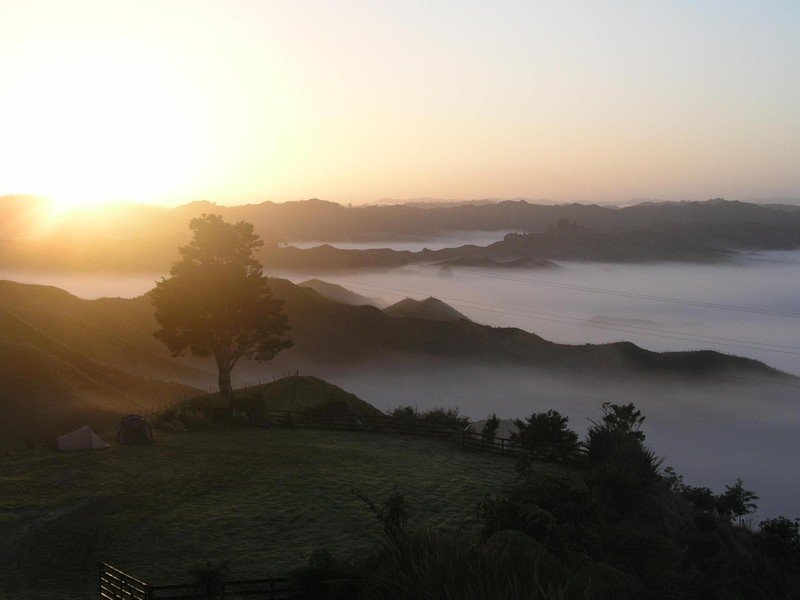|
|
Fog Photography
|
• Freezing fog occurs when liquid fog droplets freeze to surfaces, forming white soft or hard rime. This is very common on mountain tops which are exposed to low clouds. It is equivalent to freezing rain, and essentially the same as the ice that forms inside a freezer which is not of the "frostless" or "frost-free" type. The term "freezing fog" may also refer to fog where water vapor is super-cooled, filling the air with small ice crystals similar to very light snow. It seems to make the fog "tangible", as if one could "grab a handful".
• Frozen fog (also known as ice fog) is any kind of fog where the droplets have frozen into extremely tiny crystals of ice in midair. Generally this requires temperatures at or below −35 °C (−30 °F), making it common only in and near the Arctic and Antarctic regions. It is most often seen in urban areas where it is created by the freezing of water vapor present in automobile exhaust and combustion products from heating and power generation. Urban ice fog can become extremely dense and will persist day and night until the temperature rises. Extremely small amounts of ice fog falling from the sky form a type of precipitation called ice crystals, often reported in Barrow, Alaska. Ice fog often leads to the visual phenomenon of light pillars.
• Artificial fog is artificially generated fog that is usually created by vaporizing a water and glycol-based or glycerine-based fluid. The fluid is injected into a heated block, and evaporates quickly. The resulting pressure forces the vapor out of the exit. Upon coming into contact with cool outside air the vapor condenses and appears as fog.
• Garua fog is a type of fog which happens to occur by the coast of Chile and Peru. The normal fog produced by the sea travels inland, but suddenly meets an area of hot air. This causes the water particles of fog to shrink by evaporation, producing a transparent mist. Garua fog is nearly invisible, yet it still forces drivers to use windshield wipers.
|
|









